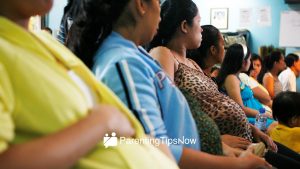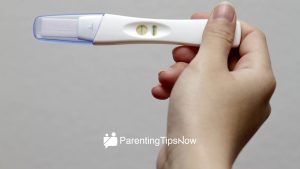Table of Contents
ToggleTeenage pregnancy in the Philippines is a topic shrouded in stigma, judgment, and societal whispers. Behind the picturesque beaches and stunning landscapes lies a reality that many choose to ignore: the untold truths of teenage pregnancy. As young girls navigate the turbulent waters of adolescence, they often find themselves facing an unexpected and life-altering journey into motherhood. But amidst the raised eyebrows and hushed conversations, there exists a deeper narrative that begs to be heard. This essay aims to peel back the layers of misconception and delve into the raw, unfiltered truths of teenage pregnancy in the Philippines, shedding light on stories that are often hidden in the shadows but deserve to be brought into the spotlight.
The Prevalence of Teenage Pregnancy in the Philippines
The prevalence of teenage pregnancy in the Philippines is a harsh reality that continues to plague the social fabric of the nation. With statistics showing an alarming increase in adolescent girls getting pregnant at a young age, it is evident that this issue demands urgent attention and intervention. Factors such as lack of access to comprehensive sexual education, poverty, and limited awareness about contraception contribute significantly to the high rates of teenage pregnancies across the archipelago.
Furthermore, societal stigma and cultural beliefs often hinder young mothers from seeking proper healthcare services and support. The taboos surrounding premarital sex and pregnancy further isolate these vulnerable individuals, pushing them into secrecy and exclusion from mainstream society. As we unravel the layers of complexities surrounding teenage pregnancy in the Philippines, it becomes crucial to address not only the physical health aspects but also provide holistic support involving mental health services, educational opportunities, and community-driven initiatives tailored to empower young mothers toward a better future.

Here are 6 untold truths about teenage pregnancy in the Philippines:
1. Social Stigma of Teenage Pregnancy: Misconceptions and stereotypes surrounding teen mothers
The social stigma attached to teenage pregnancy often stems from misconceptions and stereotypes surrounding teen mothers. Society frequently views these young women through a narrow lens, labeling them as irresponsible, promiscuous, or destined for failure. This unfair judgment fails to consider the complex factors that can lead to teenage pregnancy, such as lack of education, limited access to contraception, or challenging family dynamics.
It is crucial to challenge these harmful stereotypes and myths surrounding teen mothers. Many young women who become pregnant during their teenage years display resilience, determination, and a strong desire to provide a better future for their children. By acknowledging the diverse experiences and individual stories of teen mothers, we can break down the stigma associated with teenage pregnancy and offer support and understanding instead of judgment. Let us strive towards creating a more compassionate and inclusive society that empowers all individuals regardless of their age or circumstances.

2. Lack of Education Regarding Teenage Pregnancy: Impact on academic attainment and opportunities
Interestingly, the lack of education regarding teenage pregnancy not only affects the immediate health and social consequences but also has a profound impact on academic attainment and future opportunities for young mothers. Studies have shown that teenage mothers are more likely to drop out of school, leading to lower educational attainment and limited career prospects. This vicious cycle perpetuates the cycle of poverty and restricts the potential for upward mobility among young women who become pregnant at a young age.
Furthermore, the stigma surrounding teenage pregnancy often hinders these young mothers from accessing necessary support systems or pursuing higher education. The societal judgment and discrimination they face can exacerbate feelings of shame and isolation, compounding the challenges they already face in completing their education. By addressing these systemic issues through comprehensive sex education programs and destigmatizing conversations around teenage pregnancy, we can empower these young women to break free from societal constraints and achieve their full potential beyond motherhood.

3. Health Risks of Teenage Pregnancy: Complications faced by pregnant teenagers
Teenage pregnancy comes with a myriad of health risks and complications that can significantly impact both the young mother and her baby. Physically, pregnant teenagers are more likely to experience complications such as preterm birth, low birth weight, and high blood pressure compared to adult mothers. These factors not only jeopardize the health of the baby but also increase the risk of long-term health issues for the teenage mother.
Additionally, pregnant teenagers often face challenges in accessing adequate prenatal care due to financial constraints or lack of support from family and society. This lack of proper medical supervision can lead to undetected conditions like gestational diabetes or preeclampsia, which can pose serious risks to both the mother and her unborn child. The emotional toll of teenage pregnancy is equally significant, with higher rates of depression, anxiety, and stress among pregnant teenagers compared to older expectant mothers.

4. Economic Challenges of Teenage Pregnancy: Financial struggles of young parents
One of the most pressing economic challenges faced by young parents in the context of teenage pregnancy is the significant financial burden it places on them. With limited earning potential and often inadequate education or job training, many teenage parents find themselves struggling to make ends meet. The costs associated with raising a child, such as food, clothing, healthcare, and childcare expenses, can quickly overwhelm their already tight budgets.
Moreover, teenage parents are at a higher risk of experiencing poverty compared to older parents due to their lower levels of income and lack of financial stability. This can lead to long-term economic difficulties for both the young parents and their children. The cycle of poverty perpetuated by teenage pregnancy creates barriers that hinder these families from achieving economic security and independence. As a society, it is imperative to address these underlying economic challenges and provide support systems that equip young parents with the resources they need to break free from this cycle.

5. Support Systems of Teenage Pregnancy: Importance of community and family support
Support systems play a crucial role in navigating the challenges of teenage pregnancy, especially in countries like the Philippines where societal stigmas can exacerbate the situation. Community support, including access to healthcare, educational resources, and counseling services, is essential for pregnant teenagers to feel supported and empowered. By fostering a network of understanding individuals and organizations within the community, teen mothers can receive guidance and assistance throughout their journey.
Additionally, family support plays a fundamental role in shaping the outcomes of teenage pregnancies. Family members who offer emotional encouragement, financial stability, and practical help create a nurturing environment for young mothers to thrive despite the adversities they may face. In many cases, familial acceptance and involvement can significantly impact the overall well-being of both the teenager and her child, emphasizing the importance of strong familial bonds in times of need.

6. Policy Recommendations of Teenage Pregnancy: Improving access to reproductive health services
To address the complex issue of teenage pregnancy in the Philippines, it is imperative to focus on improving access to reproductive health services for adolescents. One key policy recommendation is to increase the availability and accessibility of comprehensive sex education programs in schools and communities. By providing young people with accurate information about sexual health and contraception, we can empower them to make informed decisions and prevent unplanned pregnancies.
Additionally, investing in youth-friendly reproductive health services is crucial in ensuring that teenagers have access to confidential and non-judgmental care. This includes offering a range of contraceptive options tailored to their needs and preferences. By creating a safe space where young people can seek advice, counseling, and support without fear of stigma or discrimination, we can help reduce the incidence of teenage pregnancies while promoting overall well-being among adolescents.

Causes of Teenage Pregnancy in the Philippines
In the context of the Philippines, several complex factors contribute to the prevalence of teenage pregnancy. One significant influence is the lack of comprehensive sex education in schools and communities. Without access to accurate information about reproductive health and contraception, many teenagers find themselves making uninformed decisions that can lead to unintended pregnancies. Additionally, cultural norms and attitudes towards sexuality often stigmatize discussions around contraceptives or sexual activity, further limiting young people’s ability to seek help or advice.
Furthermore, socioeconomic factors play a critical role in shaping the landscape of teenage pregnancy in the Philippines. Poverty and lack of opportunities can push teenagers towards early marriages or relationships where they may not have access to proper contraceptive methods or resources for family planning. In some cases, societal pressures for girls to get married at a young age can also increase the likelihood of early pregnancies. These external influences create a challenging environment for Filipino teenagers as they navigate their reproductive health choices within constrained circumstances.

Filipino Values and Teenage Pregnancy
In the context of Filipino values, the issue of teenage pregnancy sheds light on deeply ingrained societal norms and cultural beliefs. While traditional values such as respect for elders and strong family ties are celebrated in Filipino culture, there exists a dichotomy when it comes to attitudes towards sexuality and reproductive health among teenagers. The stigma attached to discussing sex openly often leads to misinformation and a lack of access to proper education about safe sex practices.
Teenage pregnancy in the Philippines also brings to the forefront the interplay between religion, tradition, and modernity. A predominantly Catholic country, the Philippines grapples with conflicting ideologies regarding premarital sex and contraception. The pressure to conform to conservative beliefs can contribute to a culture of silence surrounding sexual health issues among adolescents, ultimately leading to higher rates of unplanned pregnancies. This complex dynamic highlights the need for a more open dialogue within families, schools, and communities about sexual education that aligns with both Filipino values and the realities faced by today’s youth.

Impact of Teenage Pregnancy on Teenagers’ Lives
The impact of teenage pregnancy on teenagers’ lives is profound and far-reaching. Beyond the physical challenges, such as health risks during pregnancy and childbirth, there are also significant emotional and social consequences. Teenagers may face stigma, judgment, and isolation from their peers and community, affecting their mental well-being.
Moreover, the educational opportunities for teenage mothers are often limited, leading to higher dropout rates and decreased chances of achieving their full potential. The cycle of poverty is also perpetuated as young parents struggle to provide for themselves and their children. It’s crucial to address these multi-faceted impacts through comprehensive support systems that empower teenagers to make informed choices about their reproductive health.

What to Do if My 15-Year-Old Filipino Daughter is Pregnant?
As a Filipino parent faced with the challenging reality of a 15-year-old daughter’s pregnancy, it is crucial to approach the situation with empathy and understanding. Engaging in open and honest communication with your daughter is key in offering support and guidance during this critical time. Encouraging her to seek medical advice from professionals, exploring her options without judgment, and making informed decisions based on her well-being are essential steps towards managing the situation effectively.
Moreover, seeking assistance from family counselors or support groups can provide additional guidance and resources for both parents and the pregnant teenager. It is important to remember that while this may be a difficult time for your family, showing love, compassion, and patience can significantly impact your daughter’s emotional well-being and future choices. By facing this challenge collectively as a family unit, you can navigate through the complexities of teenage pregnancy with resilience and strength.

How Filipino Parents Should Explain to Teens About Teenage Pregnancy
Filipino parents play a crucial role in shaping their teens’ understanding of teenage pregnancy. It is essential for them to have open and honest conversations with their children about the risks and consequences of early pregnancy. Rather than resorting to fear tactics or shaming, parents should focus on building trust and creating a safe space for dialogue.
Parents can start by acknowledging that discussions around sexuality and reproductive health may be uncomfortable but are necessary. Encouraging teens to ask questions and providing accurate information empowers them to make informed decisions. By emphasizing the importance of responsibility, self-respect, and setting future goals, parents can guide their teenagers toward making positive choices regarding relationships and sexual activity.
Concluding Thoughts: Addressing the Complexities of Teenage Pregnancy in the Philippines
In conclusion, addressing the complexities of teenage pregnancy in the Philippines requires a multifaceted approach that goes beyond just providing sex education and access to contraceptives. It involves tackling deep-rooted cultural norms, socio-economic disparities, and inadequate support systems for young mothers. Breaking the cycle of teenage pregnancy also necessitates empowering young girls with education, resources, and opportunities to shape their own futures.
Furthermore, creating safe spaces for open discussions about sexual health and relationships is vital to challenging stigmas and promoting healthy behaviors among Filipino youth. By fostering a supportive environment that values comprehensive sex education and destigmatizes conversations around reproductive health, we can help prevent unwanted pregnancies among teenagers and ensure they have the necessary tools to make informed choices about their bodies and futures. Ultimately, addressing teenage pregnancy in the Philippines requires a holistic approach that recognizes the intersectionality of factors at play and actively works towards dismantling barriers to reproductive autonomy for young individuals.
















